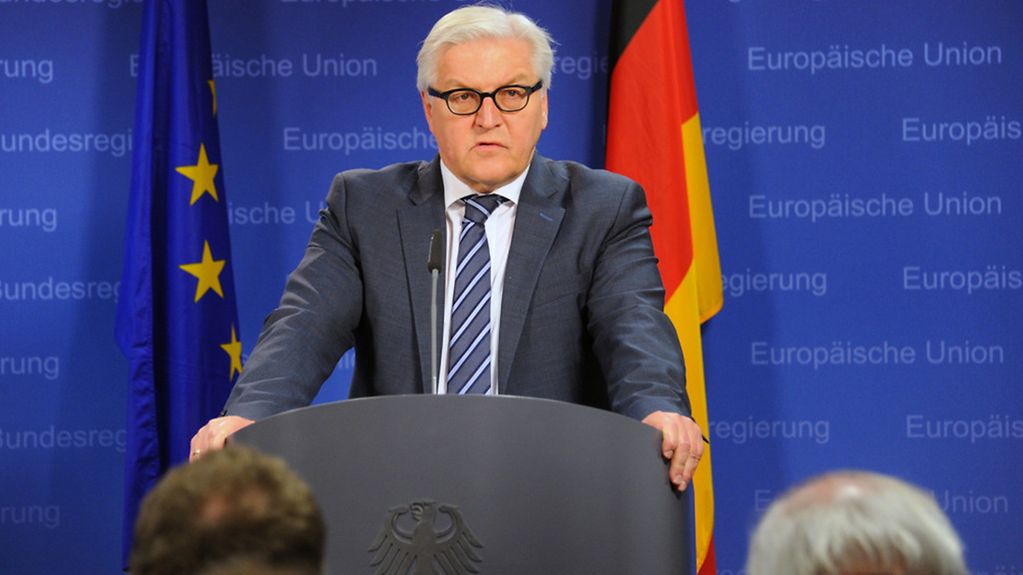Ukraine
The EU has responded to the referendum on Crimean secession from Ukraine with sanctions against Russia. At their extraordinary meeting in Brussels, the EU foreign ministers agreed on pertinent measures.
2 min reading time

Federal Foreign Minister Frank-Walter Steinmeier in Brussels
Photo: picture alliance / AA
In line with the three-stage plan adopted by the EU at the extraordinary meeting on 6 March, stage two will now come into effect. This will involve asset freezes and travel bans. Federal Foreign Minister Frank-Walter Steinmeier stressed that "this is a day that calls for unambiguous messages".
Restrictions imposed on Russian politicians and military
Frank-Walter Steinmeier reported that the sanctions will target 13 individuals from Russia and 8 leading Crimean politicians. The sanctions will initially be imposed for a period of six months. Speaking on the side-lines of the meeting with his EU counterparts, the Federal Foreign Minister thus confirmed diplomats’ reports.
Initially a total of 21 individuals are on the sanctions list, who are held to be responsible in various ways for the escalation seen over the last few days. Ten individuals from Russia are members of the Duma, or parliament, and members of the Federation Council along with three high-ranking military officers including the Commander of the Black Sea Fleet.
Before the meeting of foreign ministers, Frank-Walter Steinmeier explained that the purpose was to respond in a way that "will be clearly understood in Russia, while still leaving open paths and opportunities to prevent any further escalation in the situation which could divide Europe".
A strong signal to Russia
The High Representative of the Union for Foreign Affairs and Security Policy, Catherine Ashton, spoke of the strongest possible signal that the European Union could send Russia. The message is, that we want to be sure that they realise how serious the situation is, she added.
The USA too decided on travel bans and asset freezes. They will affect seven Russian senior government officials and four Ukrainian politicians, including the ousted president, Viktor Yanukovych.
The goal is still an OSCE observer mission
The German Federal Foreign Minister repeated his call to Russia to remove the obstacles to deploying an OSCE observer mission. This must be undertaken swiftly, he said. This is the only way Russia can prove that it is serious with the will it has pledged in many telephone conversations to refrain from any activities in the east and south of Ukraine.
In a telephone conversation on Sunday, Chancellor Angela Merkel again discussed the issue with Russian President Vladimir Putin.
Referendum constitutes a breach of international law
At the government press conference, government spokesperson Steffen Seibert stated clearly that Germany considers the referendum in Crimea to be illegal. The way the referendum was held quite clearly contravened the most elementary requirements of any fair and free vote.
Voters had no way of voting for the status quo. And finally the crushing military presence and intimidation of pro-Ukrainian opinions must be criticised.
Nevertheless, Steffen Seibert stressed that, "The German government will not let up in its diplomatic efforts to de-escalate the crisis and to ensure that the sovereignty of Ukraine is respected."